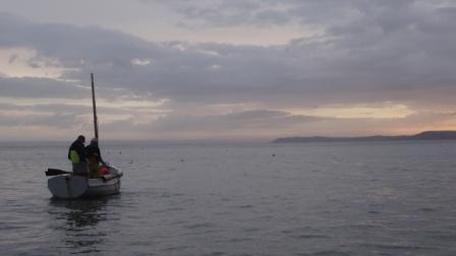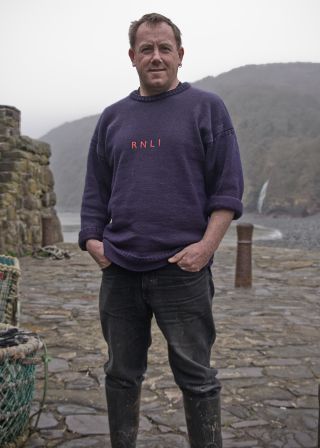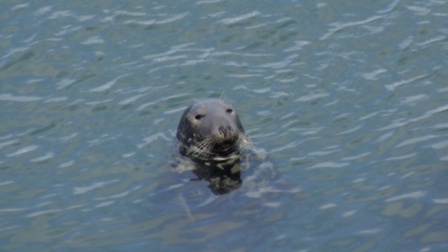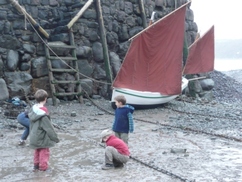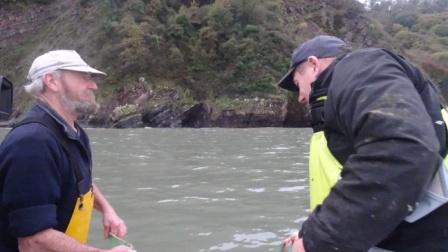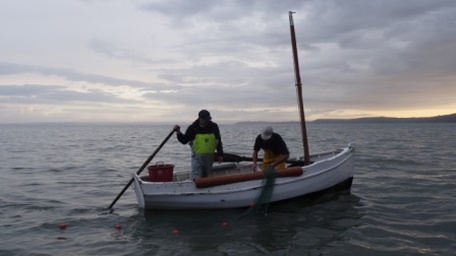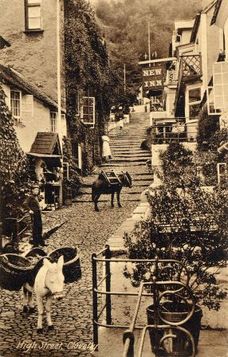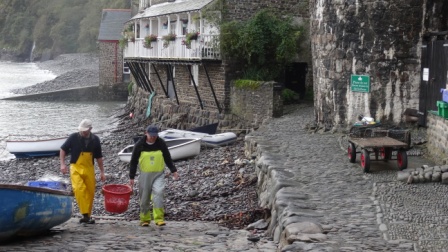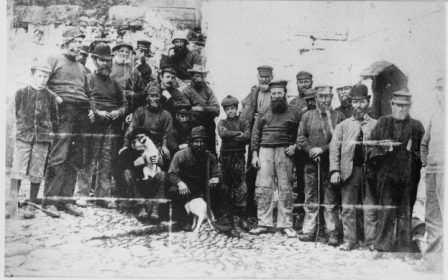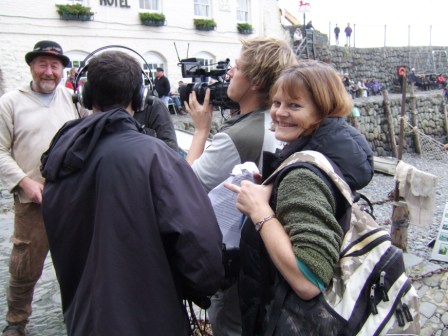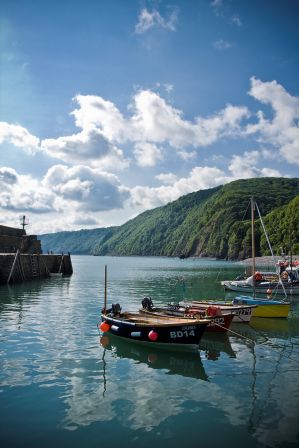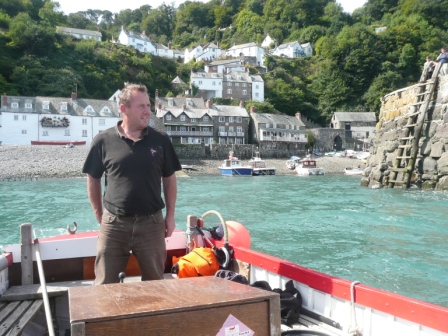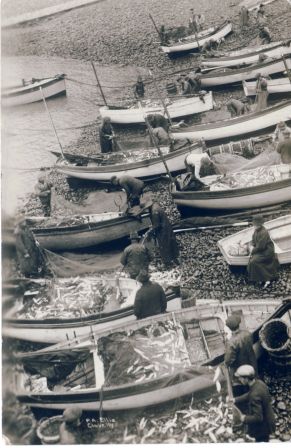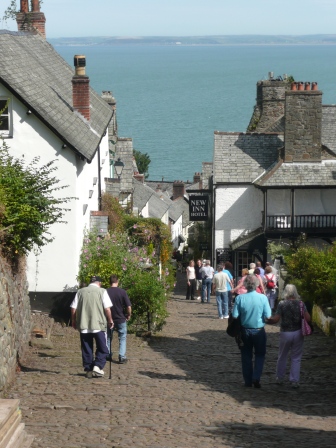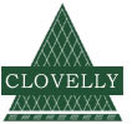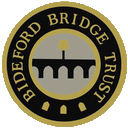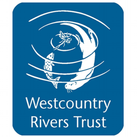Fishing for Clovelly Herring with Stephen Perham
This film follows traditional herring fisherman, Stephen
Perham, as he rows out into Bideford Bay before dawn to shoot his nets. It explores Stephen's personal crusade to revive the local, sustainable herring
fishery and get more people eating Clovelly herring.
Filmed & edited by Simon Vacher
Sound assistant Oscar Adams
Music performed by Rakes Adrift (with thanks to The Waterboys for the use of Fisherman's Blues)
directed & produced by Jo Stewart-Smith
Filmed & edited by Simon Vacher
Sound assistant Oscar Adams
Music performed by Rakes Adrift (with thanks to The Waterboys for the use of Fisherman's Blues)
directed & produced by Jo Stewart-Smith
Video blog on the making of Fishing for Clovelly Herring
|
Fishing
for Clovelly herring with Stephen Perham is our seventh film to go into
production, but it is because of Stephen that I knew Boat Stories could sail,
watertight as it were – that we had some great stories to tell. We waited seven
months because herring arrive in Bideford Bay in September with their numbers
peaking in November, but in effect I’ve waited seven years to make this
film. When I first met Stephen he’d recently
had the picarooner, his traditional wooden herring boat, built. Picarooners
were first introduced in the 1850s, designed to beat the larger luggers out to
the shoals of herring as Stephen explains in this short outtake from the film - below right.
UNINVITED GUESTS
There’s something magical about being out on the water at night. The sounds of the sea: the suck and drag of waves against invisible cliffs are magnified. Then slowly, colour seeps into the sky, on to the water, the boat and soon the orange floats of the net bobbing on the swell, glow like fairy lights. I’d been warned there might be a wait, while the nets (shot in the dark) drifted, so I was quite happy chatting to Tommy Perham, Stephen’s brother, who had agreed to take us out so we could get boat to boat shots. Simon, the cameraman, started out in the tiny picarooner, with the fishermen in case the boat suddenly filled up with hering. In the film Stephen says “this is where you’d normally hear a few choice words.” Sound carries over the water – and in fact we could hear plenty of choice words... the canny seals had discovered us. |
“Herrings play for the light.” I’d written that line a few
times (because I like the way it sounds!) so it shouldn’t have come as a
surprise when Stephen told me we’d be setting off before dawn to shoot the nets
in the dark. Herrings rise from the bottom when the light changes – so to
increase our chances of catching this fickle fish it was either setting out
before dawn or choosing dusk and shooting the rest of the film in the dark.
With Stephen’s warnings that herrings are very camera shy, we chose dawn. Simon
and I were waiting on the beach, behind the Red Lion at 5.45am. I climbed the steep
footworn steps to look over the sleeping village; there was a light on in
Stephen’s cottage but no sign of movement, so Simon and I went back to checking
the gear. Minutes later there was a shout from Stephen out of the darkness,
“hurry up you slow coaches or we’ll miss the change in the light.”
Seven
years ago, Stephen explained that because of a nationwide ban on herring
fishing from the mid seventies to the mid eighties, local people had got out of
the habit of eating this seasonal fish. The price the fishermen received for
their herrings was so poor that most of them were being kept for lobster
bait. Stephen was determined to revive
the tradition – to get local people eating herring again. Back then - I wrote a
story for Devon Life –but it has all the elements of a great film. A lone fisherman heading out into the fearsome Bristol Channel, in winter, with no engine, to try and catch a fickle fish which no one wants –determined to change things. It has the romance of the sea – a quest –against the odds – with the backdrop of a glorious location – full of interesting characters - steeped in history and tradition and colour - all the elements of a lovely half hour film which we had to turn into five minutes!
|
Later Stephen described how the seals wait by the quay for
the boats to leave harbour, follow them and ‘nick’ breakfast from the nets, driving the herring away. “We should have sent a decoy boat out first to
lure the seals up the coast.” He admitted he enjoyed seeing the seals in the
summer – it’s not a problem when I’m lobster fishing –but we could do without
them today. “On other days the seals are
nowhere to be seen and the nets fill up in ten minutes. The boat starts to sink
with the weight and we go ashore to shake out the nets.” Truth
be told, I was grateful to the seals that morning. If the nets had filled up in the half dark –
we’d have headed straight back to shore to land the fish. As it was they shot
the nets again – and slowly the bucket of fish filled up and we were able to
get those lovely profile shots of Stephen and his cousin Peter Braund in the
light.
|
ANOTHER POTENTIAL BAN
Fishing bans seem to be a recurring feature in the Boat Stories films. There was the ban on ray in October 2014 which temporarily scuppered the Bristol Channel ray fishery. Now (having been almost wiped out by the ban in the 70s) this small artisanal herring fishery is threatened by a proposed Europe-wide ban on drift netting. According to Stephen “the ban would end herring fishing here completely. It would be devastating for the village and for me personally because I love what I do.” Stephen travelled to Brussels to speak with the Fisheries Minister and explain how the small scale drift netting in Clovelly is sustainable. The Clovelly fishery is not the only small scale traditional fishery threatened and the ban is now “on the table – open to consultation. It’s up to the fishermen now to keep talking and explaining what we do and hopefully there will never be another ban on herring fishing here in Bideford Bay.” |
|
|
On the basis that if a ban is threatened there must be a
valid reason – I asked Stephen to explain why there is a proposed ban on drift
netting in all European Union waters– and why the Clovelly herring fishery (among many other small scale fisheries) should be exempt – see Stephen's answer on the left.
I could have made the film about the proposed drift netting ban. It’s a threat which still hangs over local fishermen. But I only had five minutes so I chose to make a film which focussed on another threat to this fishery - a threat that – you – the audience - can do something about – especially if you live in the south west. |
|
CLOVELLY HERRINGS – WHY DON’T WE BUY THEM?
The seals had breakfast but we still caught half a large basket of herring. Stephen and Peter went off for their breakfast, leaving us downloading the rushes - with the fish! Simon and I love herring (see my blog on how to cook them on the wood burner) and bought as many as we could manage. We sold the rest to some curious and bemused passers by, who seemed happy with their bargain. Clovelly’s famous donkeys used to carry the baskets of herring up the steep cobbled streets. Back in the 1800s you could get five for one penny but in relative terms –bought straight off the boat – they’re possibly even cheaper today. Of all the seafish, Clovelly herrings are my favourite: local, seasonal, tasty, sweet, oozing oil and easy to cook - it is difficult to understand why they no longer sell. |
|
Many people lost the habit of eating herring during the ban
and slowly the tradition of eating a local, seasonal fish was lost as more and
more people bought their fish ready filleted from the supermarket. “There’s a whole generation now who have no
idea how good Clovelly herrings taste. If
it was a summer fish” Stephen laughed, “they’d be on everyone’s barbecue.” At
the herring festival, several people reminisced on how their mothers cooked herring and
had come specifically for that taste of nostalgia. The owner of Passmores in Butcher’s
Row told me that every year a few of the older Devon country folk appear to buy
Clovelly herrings – then he doesn’t see them again until the following year
when the herrings return.
|
The
world wars took their toll on Clovelly fishermen with the younger generation
called up – some never to return and many boats requisitioned. By the seventies many of the fishers were already
older men and during the ban several of them died including Stephen’s father,
Gordon Perham. Peter Braund, who features in the film, started fishing again,
once the ban was lifted, as did Stephen’s elder brother Barry. But fishing is
always up and down and Peter went off to be a gamekeeper on the estate –
another winter trade which is slightly more reliable.
|
HERRING – THE NUMBER ONE HEALTHY FISH TO EAT
Omega 3 is the oil we get from eating oily fish. According to Seafish’s chart on Omega 3 – of ALL the fish in the pond, the lowly herring is TOP OF THE CHARTS. Quoting Seafish:
“Top of the pile, king of the hill, head honcho, big cheese, numbero uno when it comes to the best level of Omega-3... with 2817mg per 140g portion it's Herring!
The health benefits of Omega-3 include:
Omega 3 is the oil we get from eating oily fish. According to Seafish’s chart on Omega 3 – of ALL the fish in the pond, the lowly herring is TOP OF THE CHARTS. Quoting Seafish:
“Top of the pile, king of the hill, head honcho, big cheese, numbero uno when it comes to the best level of Omega-3... with 2817mg per 140g portion it's Herring!
The health benefits of Omega-3 include:
- significantly reduced chances of cancer and heart disease
- boosts to sporting performance and concentration
- association with brain development, joint function and healthy skin
- hunger satisfaction, helping with portion control and thus general
health as well as weight control.
And importantly Omega-3 is not only beneficial for health – it’s essential in the diet because it cannot be made by the body."
So what’s not to like? A seasonal fish that is extremely good for you and by buying it you are helping keeping a local tradition going. Here’s what Stephen has to say on why herrings are so good for you and how easy they are to cook.
Why not send us your favourite herring recipes and we’ll post them on our website.
|
Huge thanks to Stephen for being so patient whenever I
appear in Clovelly. I do learn something
new every time! On the boat, Peter started telling Stephen how to tie knots on the
net. Stephen admitted he was still learning stuff from Peter at the same time joking
that Peter would still weight the nets with stones – like they used to - if he
could.
Thanks also to Tommy Perham, Peter and Stephen’s extended family for joining in the fun and letting us film them. After filming Tommy went out to collect his lobster pots and texted that he’d caught loads of herrings – many more than we had! (But we caught more than a BBC crew who didn’t get up before dawn– bit of healthy competition there!) It is sad that six years after the first herring festival, and endorsements from celebrity chefs like Rick Stein and Hugh Fearnley Whittingstall, Tommy’s herrings still go for bait. “Sometimes we can’t give them away,” he told me. Stephen said “the bay is full of herring – but we don’t want to catch any more – we just need a better price for those we catch.” I spoke briefly to Joe Rossi, Stephen’s nephew, and the youngest of the trio still fishing for herring, on his way out to catch bass. Joe like most fishermen, with a small, day boat, has several different jobs – including managing a donut fryer. “I’d fish full time if I could make a living” he said, “but there’s no money in the herring.” If we hear of any local chefs doing herring specialities we’ll let you know. Meanwhile Stephen sells them directly from the boat (by prior arrangement) at brilliant value. See our fish page for details and other outlets selling Clovelly herring. Thanks to the everyone from the Clovelly estate who helped Boat Stories and for the use of some of the old photographs. Thanks to Mike Smylie 'kipperman' and all those we filmed at the Clovelly herring festival. Thanks also to Simon Vacher, brilliant on camera, as always, to Oscar Adams who we threw in the deep end –and who valiantly recorded sound at a noisy festival, to Rakes Adrift for allowing us to use their music which seemed to fit the traditional, romantic themes of this story and Mike Scott & Steve Wickham from the Waterboys for allowing us to use a short arrangement of Fisherman’s Blues! |

